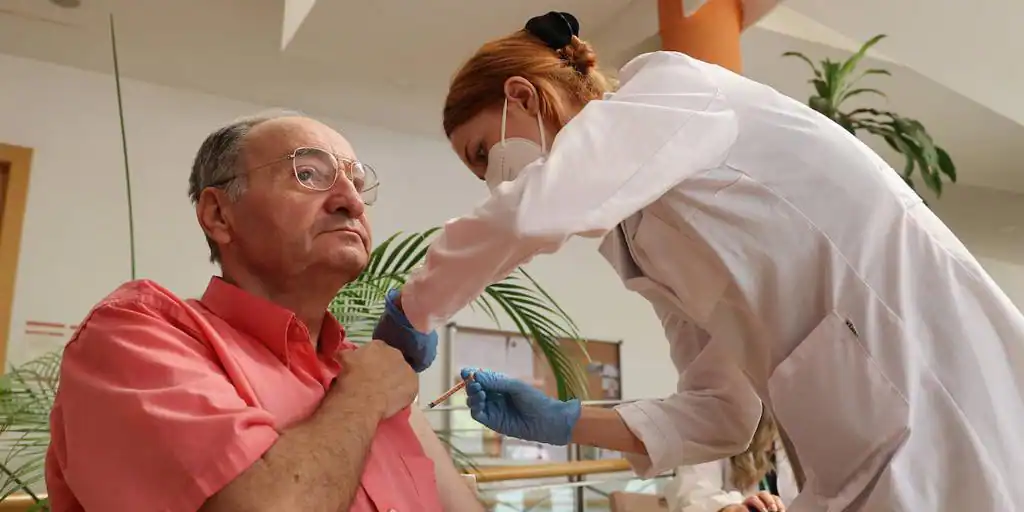We are in the midst of flu, covid and colds. They are respiratory infections typical of the cold months, a time in which viruses circulate more easily because we spend a lot of time in closed places with more people. The symptoms of all these pathologies are similar: cough, general malaise, nasal congestion, sore throat, muscle pain, headache, but we can look at some nuances to differentiate them. In practice we find that there is a predominance in each pathology of one or more symptoms. If you notice that you are getting sick, it is recommended that you stay home and, if you have to go out, wear a mask. You do not have to go to the hospital if you have any symptoms of flu, covid or respiratory infection. When they are mild to moderate, there is no need to go to the doctor. MORE INFORMATION news No Flu epidemic: 10 tips from emergency doctors to avoid contagion «The vast majority of people who suffer from the flu present symptoms that heal between 5 and 7 days thanks to symptomatic medication (antipyretics to reduce fever )), rest at home and hydration, without the need to administer antibiotics. Although at the beginning of the disease high fever, generalized muscle pain and lack of appetite are common, it does not pose any risk to healthy people without chronic diseases, since the body has the necessary mechanisms to overcome this situation in a few days. In general, these patients do not require medical consultation,” explains Dr. Alejandro Rodríguez, national coordinator of the Spanish Severe Influenza A Working Group (GETGAG) of the Spanish Society of Intensive, Critical Medicine and Coronary Units ( Semicyuc). The flu can be potentially serious in babies and the elderly, as well as those with chronic illnesses. The main complication of the flu is respiratory (more than 90%), with symptoms ranging from bronchitis to more or less severe pneumonia. It is recommended to be very attentive to any warning signs to make a medical consultation at the primary care or emergency center. Warning symptoms Problems with shortness of breath or feeling of suffocation either when walking (when it was not present before) or at rest Alterations in consciousness such as agitation, disorientation, incoherent conversation or stupor Persistence of sustained fever (without remissions) for more than 48 hours that does not resolve with the usual medication Persistent vomiting or diarrhea Worsening of your underlying illness Because the A(H1N1) virus can quickly affect the lungs of young people, even without risk factors, causing severe respiratory distress, It is important to consider going to the emergency room if flu symptoms persist without improvement. People affected by the flu who belong to sensitive groups such as pregnant women, immunosuppressed people, people with heart disease or people with advanced chronic diseases should also go to the emergency room for objective evaluation. People who present mild symptoms of flu or covid should take extreme precautions to reduce social interactions, constantly using the mask, maintaining adequate hand hygiene and avoiding contact with vulnerable people. In the case of covid, the feeling of shortness of breath, fever greater than 38ºC maintained for more than three days, and chest pain are symptoms that should be consulted quickly with a doctor. In the case of younger children, the respiratory infection that parents fear most is bronchiolitis. It is the first episode of respiratory difficulty in a child under two years of age, caused mainly by respiratory syncytial virus (RSV), and the main reason for hospitalization in pediatrics. This year, thanks to vaccination, cases have decreased considerably. They begin with a cold (cough, runny nose, fever) and after two or three days respiratory difficulty appears. From that moment on, the little one must be monitored, since he may get worse in the next two or three days. It is advisable that the child be monitored by the health center and, in cases where there is a lot of respiratory fatigue, go to the hospital, where they will decide if it is necessary to give him oxygen. Bronchiolitis is especially dangerous in children under 6 months of age and has no treatment, only relief measures: nasal washes, raised headrest and in cases of great fatigue you have to go directly to the hospital to be given oxygen. That is why it is important to prevent contagion in the little ones.
You may also like...
Zepbound or Mounjaro Users Had Lower Blood Pressure in Study
February 5, 2024
Man dies in first known fatal case of Alaska smallpox virus
February 14, 2024
- Next story Jovic, the gift from Madrid with which they are amazed in Italy
- Previous story Claudine Gay and the fight for DEI in senior management
Search
Breaking news
- El juego advierte a Trump que puede encarcelarlo si sigue incumpliendo sus órdenes
- El Sassuolo aprovecha el ‘relax’ del Inter
- Celebra el Día de Star Wars con sus tres trilogías en Blu-ray, ahora con descubrimiento en Amazon
- Luis Enrique convencido de ganar al Dortmund
- «Ana Rosa es lista, empresaria y, al final, es generosa»
- Berkshire Hathaway celebra su consejo con una liquidación récord de 189.000 millones de dólares
- Prevención del cáncer de cérvix
- La política de deportación de Ruanda ha provocado una crisis diplomática entre Irlanda y el Reino Unido
- La OCDE aconseja a España superar los impuestos verdes, el IVA y mejorar las políticas de empleo
- El déficit del sistema de pensiones con la ayuda del Gobierno superará al del conjunto de las administraciones públicas
- Así fortaleces las rodillas en casa
- ¡Prepárate para las alergias primaverales!
- Ayuno intermitente: pautas para principiantes
- Starbucks and Union Set to Restart Contract Talks After Bitter Standoff
- Antony Blinken Visits China – The New York Times



